May 18, 2022
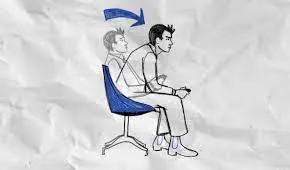
Even at the best of times, SoloQ can be equal parts entertaining and frustrating. You not only have to defeat the enemy but also get your team to play together.
There are a few major mistakes that people make when they play SoloQ but this thread should help you manage them. The main mistakes people make are playing tilted, getting affected by other people in the game, getting frustrated with your own performance, plateauing and losing motivation.
People don’t plan to fail, they fail to plan
Long gaming sessions can be a great escape from reality for many people. Unfortunately these sessions often end on either a loss, a win (under extreme fatigue) or via tilt (I’m uninstalling this game!). We let the outcome of games or our physical/emotional state dictate when we stop. This often leads to much lower quality of performance, especially towards the end of a session.
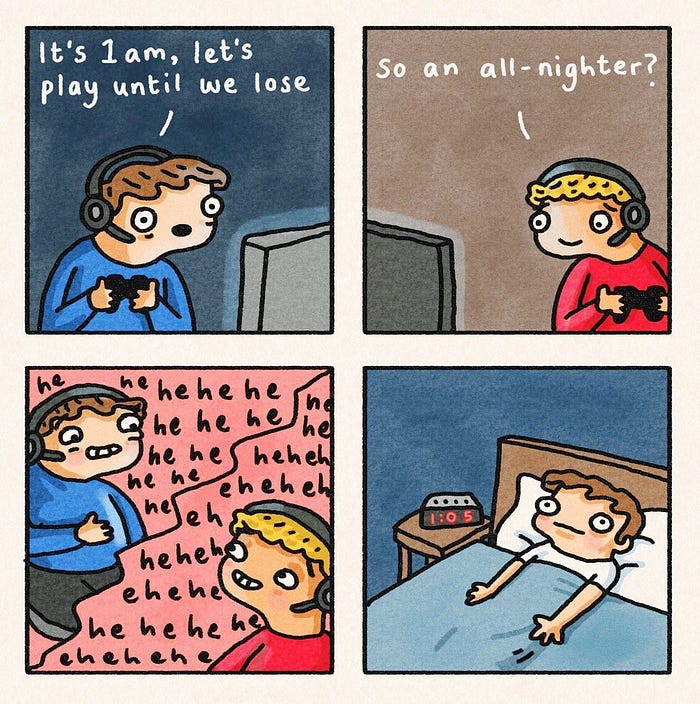
Try chunking your practice by predetermining how many games you will play in a gaming block. This can be 3 or 4 or 5 games (it depends on the length of the average game as well as the intensity of the games). In games like Overwatch and Valorant you can probably play more games compared to Dota or League.
This works for a variety of reasons. The primary advantage is that it gives you increased control over your session.
The effort and emotional investment in each game is NOT created equal. Much like a good workout there are games that drain you more than others and your recovery should be proportional to the effort and emotional cost. The more drained you are, the more recovery you need so that you can give more in your next game.
If you want a very simple system then follow these guidelines.
Remember that the main purpose is for you to be able to treat each game as a separate experience. You want to be able to leave the baggage of the previous game behind you and move forward
— — — — — — — — — — — — — — — — — — — — — — — — — — — — — — — — — — — — — —

2. Canary in the cage
When we are thinking clearly and logically we will be playing at our best. When we are tilted or emotional we do things that are below our A game. We try to do things that are stupid or risky with high variability. An important aspect to understand about tilt is that once you are tilted it can be difficult to get out of it. It is much more efficient to prevent tilt than to reverse it.
A little trick you can do is to give yourself a habit to do after each game. This can be something as simple as taking a timed break, stretching, exercise, walking to get some water or changing your scenery. How this works is, everytime you finish a game you perform the action. If you don’t do it or don’t want to do it, then it is a good indication that you are not thinking logically and therefore should not queue up again. You need more time to decompress and take a break. Taking more time away from stressful games helps, as well as changing your inputs. Inputs, in this case, would be your stimuli surrounding you. Going into a different room to get water, going outside or looking out the window all tick this box.
— — — — — — — — — — — — — — — — — — — — — — — — — — — — — — — — — — — — — —
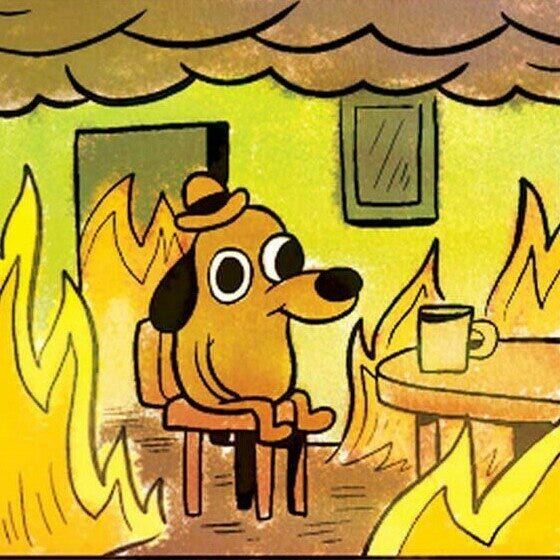
3. que sera sera (whatever will be will be)
Tilt is when your expectation of reality doesn’t match what happens in the game. It’s important to go into your games knowing that everything and anything can (and usually will) happen. We have so much emotion invested in the wins and losses because we attach a sense of worth to the tier we play in. Conversely, getting frustrated at something that another player does or does not do will cause you no end of distress.
A way to overcome this is to set up in game goals that focus on improvement as opposed to outcome. This helps give you something tangible to focus on that actually makes you a better player (CS’ing, roaming, spell usage, holding angles). Even if the game ends in a loss you can review your game through the lens of incremental improvement. Over time these small improvements equate to promotion to ELO gains.
— — — — — — — — — — — — — — — — — — — — — — — — — — — — — — — — — — — — — —
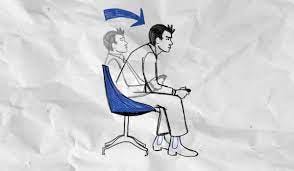
4. Focus up
Focus is a finite resource so we should be careful where we expend it. There is a reason why pro players perform their best on stage. There are no distractions to dilute their focus. There are many examples of distractions in front of you right now. From discord notifications to second monitors playing your favorite anime, we have conditioned ourselves to require many stimuli for maximum entertainment. Take some time before and after games with minimal distractions to replenish your focus levels. Go outside or go into another room (compartmentalization) to change your perspective (literally). It’s a great way of getting fresh eyes and much better than slouching in the chair in dejection.
— — — — — — — — — — — — — — — — — — — — — — — — — — — — — — — — — — — — — —

5. Downplay Copium
Better jungler wins. I’m in ELO hell. Reyna op. There are a lot of things that we tell ourselves so that we feel better after a loss but in reality they hold us back from addressing why we actually lost. There are very few instances whereby you played perfectly so there is always room for improvement. If you always blame your outcome on external factors then there is never anything you will focus on that is in your control. It is a neat trick that we do to protect our ego and confidence. ALWAYS review your games and look for ways to improve (even better if you can find someone else to look over them with you).
— — — — — — — — — — — — — — — — — — — — — — — — — — — — — — — — — — — — — —
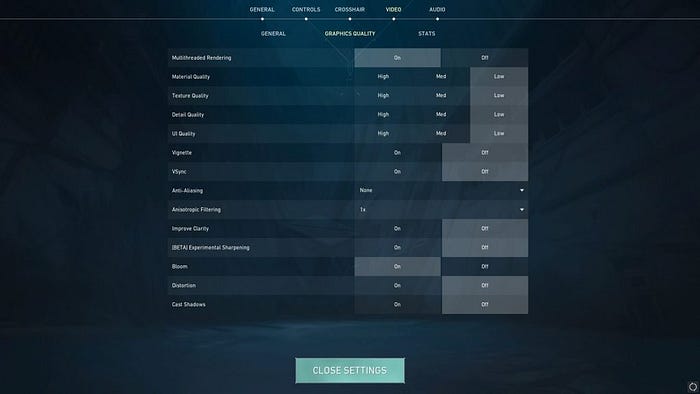
6. Are you rushing or dragging?
Optimization is a fantastic mindset but it should be a cyclical process. You should not be changing your settings every few days or you will never know what works. Find something that sounds good in theory and try it out. The bigger the change from your existing settings, the longer you should be practicing with it before deciding if it works or not. Small changes don’t take as long to ‘feel’ good but should not be done frequently. Constant changes makes it hard to know how it correlates to our actual performance as the sample size is just not big enough.
The true benefit of finding settings that work for you are;
These are the main reasons why changing settings is important but let’s not base the frequency of change on a bad session or to copy someone else. It’s always best to find something that works for you and feels good for you.
— — — — — — — — — — — — — — — — — — — — — — — — — — — — — — — — — — — — — —

7. Pick a lane
Limit the variables. We all think we have an ocean of picks/roles but you should have clear comfort picks as well as new things you want to try. If the goal of SoloQ is climbing then playing comfort champs makes the most sense. If you want to learn new champs/heroes/agents then watch some educational vods and practice before you load up. Losing and learning while learning new things are the costs of leaving your comfort zone. It’s important to mix in some games with your comfort picks too with the new ones. This helps by giving you reps on things that are familiar and help maintain confidence and momentum while playing.
Main Points
The essential practices for SoloQ